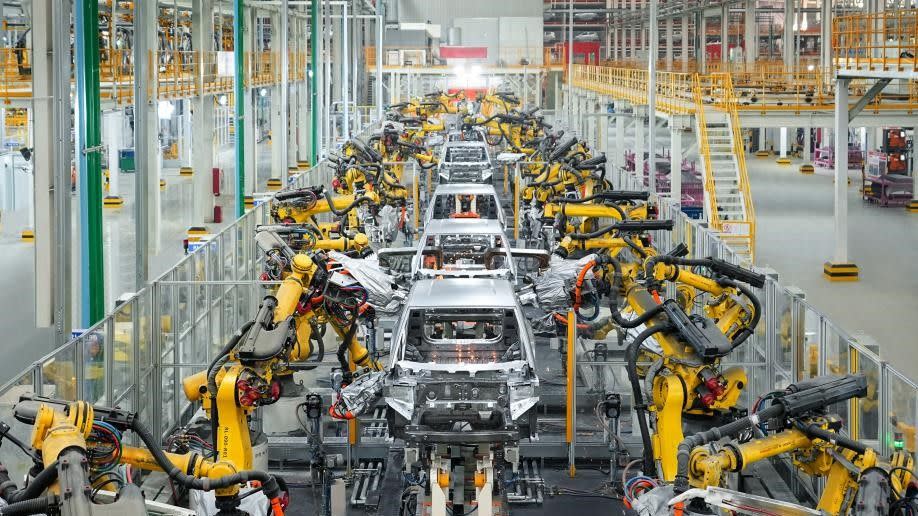This Chinese EV Maker Plans a Factory in Europe

BYD plans a new plant in Szeged, Hungary, as imports of EVs from China continue to grow amid an EV boom.
The Shenzhen-based automaker already has an electric bus manufacturing site in Komarom, Hungary.
BYD has seen quick growth over the past few years in China and other markets, and has plans to add more EVs to its lineup over the next 12 months.
There has been no shortage of Chinese auto brands that have eyed the European market with interest, especially in the EV era. And a number of these brands are currently on sale in Europe, just as the continent is starting to take more substantial steps toward a ZEV future.
But until recently, these automakers have preferred to keep their production footprint in the Middle Kingdom, even as the subject of vehicle importation has become a politically charged topic in the EU.
This will change in the coming years as BYD, one of China's fastest-growing car makers and one that has seen the most growth in the past few years, plans to open a factory in Hungary.
The automaker, which has recently received plenty of publicity for its affordable electric models, recently revealed that it plans to build a manufacturing and production center in Szeged, Hungary, in the south of the country. The facility, which won't be far from the borders of Serbia and Romania, will feature what BYD calls highly automated production processes, with the automaker also planning to create a green ecosystem on a local level as well as thousands of jobs.
"With a mature infrastructure and a well-established industrial foundation, Hungary has been chosen by several premium European manufacturers as a production location for passenger cars," BYD noted.
However, the company did not say just when the new plant is expected to open.
The Shenzhen-based automaker has seen exceptional growth internationally within the past few years, having opened 230 retail locations in 19 countries just in its first year of European operations. This has allowed BYD to field five models early on, with plans for an additional three to join in the lineup in the next 12 months, the company noted.
BYD's choice of Hungary is logical, in many respects, with the country already hosting production facilities for a number of German automakers including Audi and Mercedes-Benz, in addition to component suppliers. BYD already has a site in another city in northern Hungary that produces electric buses, which opened in 2016.
The automaker's plans for a factory in Hungary also come amid fears of a pullback by European automakers from Europe itself due to rising energy costs, as well as other economic stresses, which have already sparked open discussions regarding several automakers possibly being forced to move production elsewhere in the coming years, possibly to southern Europe or to China. These fears have already caused plenty of consternation from worker unions in Germany and elsewhere.

In revealing plans for a Hungary facility, BYD is also pushing back on calls for tariff measures in the EU that have been threatened by several bloc politicians taking aim at an alleged "flood" of cheaper electric cars from China.
Europe's embrace of EVs, which caught several established European automakers off guard earlier in the decade, has also played a major role in Chinese automakers' entry into the EU market, and not just because of the promise of inexpensive EVs. To the contrary, many of the models launched in Europe thus far have been premium or luxury offerings.
Will demand for EVs in Europe favor Chinese automakers in the longer term in Europe, or is this largely a temporary situation sparked by demand for EVs? Let us know what you think.

 Yahoo Autos
Yahoo Autos 